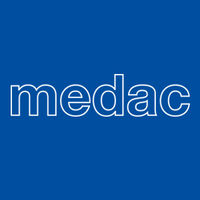预约演示
更新于:2025-05-07
prolactin
更新于:2025-05-07
基本信息
别名 PRL、prolactin |
简介 Prolactin acts primarily on the mammary gland by promoting lactation. |
关联
3
项与 prolactin 相关的药物作用机制 D2 receptor激动剂 [+1] |
在研机构- |
原研机构- |
在研适应症 |
非在研适应症- |
最高研发阶段批准上市 |
首次获批国家/地区- |
首次获批日期1994-01-01 |
作用机制 prolactin拮抗剂 |
在研适应症 |
非在研适应症- |
最高研发阶段临床前 |
首次获批国家/地区- |
首次获批日期1800-01-20 |
作用机制 prolactin拮抗剂 |
在研适应症 |
非在研适应症- |
最高研发阶段临床前 |
首次获批国家/地区- |
首次获批日期1800-01-20 |
5
项与 prolactin 相关的临床试验EUCTR2015-002586-39-BE
Randomized, Multicenter, Double-Blind, Placebo-Controlled Trial toEvaluate the Efficacy and Safety of Terguride Plus Symptomatic Therapyin Subjects With Diffuse Cutaneous Systemic Sclerosis - TERGISS
开始日期2017-01-19 |
ISRCTN36145549
A phase 1, open-label trial to evaluate the effects of single and multiple doses, CYP3A4 inhibition, and food on the pharmacokinetics of terguride in healthy subjects with known CYP2D6 genotypes
开始日期2016-02-02 |
EUCTR2007-003975-38-AT
Proof of Concept Study to Investigate the Efficacy, Haemodynamics and Tolerability of Terguride vs. Placebo in Patients with Pulmonary Arterial Hypertension. Double-blind, randomized, prospective Phase II proof of concept study for 12 weeks of constant treatment with Terguride or placebo - TERPAH
开始日期2010-10-03 |
申办/合作机构 |
100 项与 prolactin 相关的临床结果
登录后查看更多信息
100 项与 prolactin 相关的转化医学
登录后查看更多信息
0 项与 prolactin 相关的专利(医药)
登录后查看更多信息
28,808
项与 prolactin 相关的文献(医药)2025-09-01·Journal of Pharmaceutical and Biomedical Analysis
Intervention study of Yanghe decoction on plasma cell mastitis based on mammary microecology and metabolomics investigation
Article
作者: Xiao, Yi ; Zhang, Shuo ; Ma, Feixia ; Qian, Luyao
2025-06-01·Brain Research
Sex-related gene expression in the posterodorsal medial amygdala of cycling female rats along with prolactin modulation of lordosis behavior
Article
作者: Giovenardi, Márcia ; Bühler, Letícia ; Goffin, Vincent ; Rasia-Filho, Alberto A ; de Moura, Ana Carolina
2025-06-01·Toxicology Reports
Antipsychotic-induced hyperprolactinemia: Toxicologic mechanism and the increased breast cancer risk
Review
作者: Bird, Steven B
48
项与 prolactin 相关的新闻(医药)2025-04-02
In the largest and most comprehensive study of its kind, researchers have provided further evidence that a hormone responsible for regulating breast development acts as a risk factor for breast cancer in post-menopausal women.
By studying a large population, the researchers could identify groups of women for whom this hormone – called prolactin – is most strongly associated with breast cancer risk. Their findings will help advance the understanding of what causes breast cancer and could influence future approaches to risk prediction and prevention.
Scientists based at The Institute of Cancer Research, London, were involved in the international study, which was carried out by researchers across the United Kingdom, the United States, Canada and Australia.
The study, which was funded by various sources, including the Breast Cancer Research Foundation and Breast Cancer Now, pooled data from five cohort studies, each of which used the resources of the Biomarkers in Breast Cancer Risk Prediction (B2Risk) consortium to follow individuals with common characteristics and track certain health outcomes over time. This gave the researchers access to information on 8,279 post-menopausal women who were breast cancer-free and aged, on average, 60–67 years at the time of enrolment.
The researchers collected blood samples from all participants at the start of the study so that they could measure plasma prolactin levels and analyse various tumour characteristics. They also gathered participant data on aspects such as body mass index (BMI), alcohol use and breastfeeding history through questionnaires and medical records.
DNA extracted from the blood samples was used to calculate a breast cancer polygenic risk score – an estimate of the person’s risk of developing the disease based on their genetic make-up. In addition, mammographic density – obtained through screening mammograms – was made available to the respective study centres from those who consented. Across the cohort studies, 3,441 of the women were diagnosed with invasive breast cancer.
The study, which was published in the journal Breast Cancer Research, revealed the clear relationship between prolactin levels and breast cancer risk. Lower prolactin concentrations (defined as below 7.91 ng/mL) did not seem to increase breast cancer risk, while higher concentrations (greater than 13.15 ng/mL) were associated with a risk approximately 20 per cent higher. While there were some variations in these associations across the cohorts, the results were generally consistent.
Although previous studies have explored the association between prolactin and breast cancer risk, this new analysis is strengthened by its larger population sample, which included nearly twice the number of post-menopausal women compared with any previous study. This allowed the researchers to detect more reliable patterns and ensure that they apply to a broader population.
The study has provided further evidence that post-menopausal women with higher plasma prolactin concentrations are at an increased risk of breast cancer. Interestingly, this risk was most significant among women using post-menopausal hormone therapy (PMH) at the time their blood was drawn, suggesting that prolactin may work with other hormones to influence breast cancer risk.
The timing of the blood sample collection also came into play, with the association between prolactin and breast cancer risk being stronger for those whose blood was collected within the 10 years leading up to their cancer diagnosis. The researchers think that the samples taken further ahead of diagnosis may have shown a weaker association because they did not capture the hormonal changes that occur closer to the disease’s onset.
Overall, the findings confirm prolactin’s role in post-menopausal breast cancer risk. However, this was primarily observed in women who were current PMH users, with limited evidence of a similar risk in non-users.
The large sample population, which included women enrolled on the Breast Cancer Now Generations Study, based at the ICR, also gave the researchers the opportunity to explore factors that might modify the effect of prolactin on breast cancer risk – many of which had not been investigated before.
For instance, they found that BMI might influence the relationship between prolactin and breast cancer. The association appeared stronger in women with lower BMIs, suggesting that prolactin may interact with other hormonal factors related to body weight to affect breast cancer risk.
This supports other researchers’ findings showing BMI can influence sex hormone levels in post-menopausal women.
The researchers acknowledge the limitations of their data, which only represent post-menopausal women of European ancestry and are restricted to one prolactin measurement per person. However, they state that this study marks an important step towards personalised breast cancer prevention and tailored risk assessments, offering the potential for earlier detection and targeted interventions that could prolong and save lives.
Professor Montse Garcia-Closas, co-author of the study and Group Leader in Integrative Cancer Epidemiology at the ICR, said:
“This study contributes to the substantial body of evidence linking prolactin to post-menopausal breast cancer risk and provides valuable insights into this complex relationship.
“The findings will allow us to identify specific groups of women for whom this association is particularly relevant. Identifying these groups will improve our understanding of the causes of breast cancer and help inform how prolactin might be used to enhance clinical breast cancer risk assessment models.
“As this field of research grows, further studies will be necessary to explore how prolactin interacts with other hormones and whether it could become a possible target for breast cancer prevention or treatment.”
Dr Simon Vincent, Director of Research, Support and Influencing at Breast Cancer Now, which helped fund the research, said:
“Thanks to data from multiple studies, including the Breast Cancer Now Generations Study, researchers have found that measuring prolactin levels may help us determine a women's risk of breast cancer. If those at higher risk of developing breast cancer are identified, personalised screening strategies could then be used to offer women who are most at risk more frequent screening and help ensure the disease is diagnosed earlier. This is crucial, as the sooner breast cancer is diagnosed, the more likely it is that treatment will be successful.
“There’s no single cause of breast cancer as it results from a combination of the way we live our lives, our genes and our environment. With many contributing factors, relating to female sex hormones, it is vital that we continue to build our understanding of how these hormones affect women’s risk of the disease.
“In addition to speaking with their GP, anyone concerned about their risk of breast cancer can get in touch with our expert nurses for information and support via our free and confidential helpline on 0808 800 6000 or visit breastcancernow.org.”
临床结果
2025-03-31
Treatment with LB-102 resulted in a positive shift in disease severity as measured by mean change from baseline in Clinical Global Impression of Severity (CGI-S) scores Phase 3 clinical trial of LB-102 in acute schizophrenia expected to initiate in Q4 2025 NEW YORK, March 31, 2025 (GLOBE NEWSWIRE) -- LB Pharmaceuticals Inc., a clinical-stage biopharmaceutical company developing novel therapies for the treatment of neuropsychiatric diseases including schizophrenia, today presented additional positive data from NOVA1, a Phase 2 clinical trial of LB-102 in acutely exacerbated schizophrenia patients, at the 2025 Annual Congress of the Schizophrenia International Research Society (SIRS) being held in Chicago, Illinois, from March 29 to April 2, 2025. As previously reported the primary endpoint of NOVA1, a clinically meaningful change in Positive and Negative Syndrome Scale (PANSS) total score at week 4, was achieved with a high degree of statistical significance at all doses. The study also measured mean change from baseline in Clinical Global Impression of Severity (CGI-S) score, which rates illness severity on a scale from 1 (normal) to 7 (extremely ill) and has been shown to correlate with PANSS, as a secondary endpoint. At week 4 of the study, participants treated with the 50 mg dose (n=107) achieved a mean change in baseline CGI-S score of -0.72 compared to placebo (p=0.0008). Those who received the 75 mg dose (n=108) achieved a mean change in baseline CGI-S score of -0.67 compared to placebo (p=0.0048). Treatment with the exploratory dose of 100 mg (n=36) resulted in a mean change in baseline CGI-S score of -0.84 compared to placebo (p=0.0026). "The significant improvement in CGI-S scores observed in NOVA1 reinforces that LB-102 may provide a meaningful clinical impact on disease severity and further validates its strong potential as a next-generation treatment for schizophrenia,” said Heather Turner, Chief Executive Officer of LB Pharmaceuticals. “These results support our vision for LB-102 as a therapy that provides a compelling balance of efficacy and safety, addressing the urgent need for better-tolerated, efficacious therapies for people with schizophrenia. As we advance toward the initiation of a Phase 3 clinical trial in Q4 2025, this data strengthens our confidence in LB-102 as a first-in-class benzamide antipsychotic in the United States.” Treatment with LB-102 was generally safe and well-tolerated. The most common adverse events were insomnia, headache, anxiety, and agitation, consistent with existing antipsychotics. Increases in prolactin were observed with few clinical adverse events associated with those increases. Modest weight gain was also observed but was not associated with a clinically meaningful signal in metabolic parameters. John M. Kane, M.D., Professor of Psychiatry and Molecular Medicine at the Donald and Barbara Zucker School of Medicine at Hofstra/Northwell, the Co-Director of the Institute for Behavioral Science at the Feinstein Institutes for Medical Research, and the Principal Investigator of NOVA1, added, “These CGI-S scores are compelling. In combination with the statistically significant change from baseline in the PANSS total scores, the findings of NOVA1 reflect the potential real-world clinical impact of LB-102 on patients with acute schizophrenia. While PANSS scores provide a structured measure of symptom changes, CGI-S offers an independent, clinician-driven, assessment of overall disease severity. The meaningful reductions in CGI-S scores suggest that study participants are experiencing not just statistical improvement, but tangible, clinically relevant benefits that could translate to better daily quality of life. Given the ongoing need for effective and well-tolerated treatment options, these findings further support the potential of LB-102 to help address a critical gap in schizophrenia care.” About NOVA1The Phase 2 randomized, double-blind, placebo-controlled, multi-center inpatient trial enrolled 359 adults, age 18 to 55 with DSM-5 diagnosis of acutely exacerbated schizophrenia. The trial evaluated the efficacy and safety of a once-daily oral dose of LB-102. The primary objective of the study assessed the efficacy of LB-102 versus placebo in reducing Positive and Negative Syndrome Scale (PANSS) total scores at day 28. The secondary objectives of the study included improvement in CGI-S, PANSS subscale and Marder Factor scores, safety and tolerability, and pharmacokinetics. Randomization was approximately 3:3:3:1 as participants received either placebo, 50 mg QD LB-102, 75 mg QD LB-102, or 100 mg QD LB-102. About LB-102LB-102 is a potent antagonist of dopamine D2/3 and 5HT7 receptors with low off-target activity. In a Phase 2 clinical study of once-daily orally administered, LB-102 meaningfully improved symptoms of schizophrenia. A Phase 3 clinical study is planned to begin later in 2025. Based on the mechanism of action and preclinical studies, clinical trials of LB-102 are being planned in bipolar depression, predominantly negative schizophrenia, and Alzheimer’s agitation/psychosis, in addition to other psychiatric indications. The first of these studies is expected to begin in 2026. If approved, LB-102 would be the first benzamide in the U.S. to treat psychiatric disorders. About LB PharmaceuticalsLB Pharmaceuticals is a clinical-stage biopharmaceutical company developing novel therapies for the treatment of neuropsychiatric diseases, including schizophrenia. The company’s lead candidate, LB-102, is a potential first-in-class benzamide antipsychotic in the U.S. designed to address critical gaps in the current standard of care by providing comprehensive disease management with a generally safe and tolerable profile. LB Pharmaceuticals is backed by institutional investors Deep Track Capital, TCGx Crossover, Vida Ventures, and Pontifax. To learn more, visit our website at https://lbpharma.us/. Media Contact: Michael Fitzhugh LifeSci Communications mfitzhugh@lifescicomms.com
临床2期临床结果
2025-03-06
·研发客
//
• 女性健康不仅是生殖健康,还包括可能对女性产生不同影响或影响更为突出的常见健康问题。
• 子宫内膜异位症和更年期健康领域具有很大的未满足需求,新药开发的方向都是寻求非激素类或者更安全的新型激素药物。
• 女性的生理差异影响到部分药物,尤其是心血管代谢药物的疗效和安全性。
世界经济论坛(World Economic Forum)和麦肯锡健康促进研究院(McKinsey Health Institution)近期发布的一项分析显示,相对于男性,女性处在健康不佳状态的事件要多出25%;另一方面,过去40年来,30%的药品召回与女性相关的安全风险有关。解决这一显著未满足需求可能会在2040年每年为全球贡献超过1万亿美元的GDP,并创造新的市场机会。
女性健康不仅仅是生殖健康。麦肯锡的定义更为广泛,不仅涵盖了与女性生殖或其他女性生理特征相关的特定疾病,还包括可能对女性产生不同影响或影响更为突出的常见健康问题。
大多数药企已经涉足了女性健康领域。麦肯锡的分析显示,全球排名前20的制药公司中,大多数超过60%的收入来自于治疗那些影响女性的疾病的产品,其中相当部分用于治疗自身免疫疾病、精神障碍、骨质疏松、心血管疾病和女性相关癌症。
然而,女性健康方面的药物研发仍然显著不足。除去肿瘤,女性健康相关疾病的新药开发投入仅占药企全部临床开发费用的1%,且资产集中在生殖、妇科疾病和妇科感染方面。麦肯锡认为,在孕产期健康、子宫内膜异位症和更年期健康这三个领域上,具有非常大的发展潜力。
急需更安全的新型药物
子宫内膜异位症影响了约1.7亿全球女性,带来严重的疼痛和生育问题。目前的治疗方法包括采用NASID短期镇痛,口服避孕药或孕激素,以及一些二线治疗如GnRH激动剂和左炔诺孕酮宫内缓释系统(LNG-IUS)。
围绝经期相关症状包括潮热、夜间盗汗、情绪波动以及增加骨质疏松和心血管疾病的风险。标准治疗方法是激素替代疗法(HRT)。
这两类显著影响女性健康的疾病都涉及激素变化,因此长期以来都是以激素疗法为主要治疗手段,但是激素疗法会带来一些副作用,比如GnRH激动剂会导致雌激素缺乏症、排卵抑制,而HRT与乳腺癌、心脏病发作、中风和血栓等风险相关。因此这两类疾病药物开发的共同方向都是寻求非激素类或者更安全的新型激素药物,改善患者的生活质量。
然而,涉足这一领域药物开发的公司有限。
2018年,FDA批准艾伯维的GnRH拮抗剂Orilissa(elagolix)用于子宫内膜异位症疼痛,成为十年来首个用于该适应症的口服疗法。然而,这一新型激素药物仍然会带来骨丢失的问题。另一款GnRH拮抗剂linzagolix正在开展相同适应症的3期研究,这款在研药物的国内权益为葆正医药所有。
在非激素药物的开发上,和其瑞从拜耳引进的PRL单抗目前正在国内外开展2期研究。去年10月,发布了研究的中期积极结果。此前拜耳曾尝试开发P2X3 受体拮抗剂 eliapixant用于子宫内膜异位症,但因安全性问题而放弃。
围绝经期相关研发的重点近年来转向针对潮热的非激素治疗。2023年FDA批准了安斯泰来的Veozah(fezolinetant),使其成为首款获批用于围绝经期潮热症状的NK3受体拮抗剂。不过,由于潜在的肝损伤风险,接受该药治疗的患者需要检测肝功能,上市后销售额也不如预期。
拜耳已经向FDA提交了NK1/3受体拮抗剂elinzanetant的上市申请。打击NK1受体可能在理论上提供比仅靶向NK3的Veozah更好的肝脏安全性。拜耳认为,靶向NK1受体理论上可提供比仅靶向NK3的药物更好的肝脏安全性。
药物研发中的性别差异
一些研究发现,由于女性第二条X染色体在免疫反应中的积极作用,尤其是脂肪分布和代谢方面的生理差异,会影响到部分药物,尤其是心血管代谢药物的疗效和安全性。
比如,诺华发现,其心衰药物诺欣妥(沙库巴曲缬沙坦钠)对女性更为有效,原因是因为女性发生射血分数保留的心衰(HFpEF)的几率是男性的两倍。该公司在针对目标患者亚群开展临床试验后,成功拓展了适应症,使药物覆盖人群增加了超过200万名。
类似的例子还有优时比的西敏佳(培塞利珠单抗)。优时比发现,这一药物在胎盘和母乳中的量极少,因而于2024年获得FDA的批准允许孕妇使用,使相关患者可以在孕期继续治疗。
麦肯锡的分析显示,弥补性别差异对女性患者的治疗,可以提高女性患者的依从率,让更多女性患者获益,并防止相关伤残调整生命年(DALY)的损失,对整个医疗系统带来深远的影响。
编辑 | 姚嘉
yao.jia@PharmaDJ.com
总第2353期
访问研发客网站,深度报道和每日新闻抢鲜看
www.PharmaDJ.com
临床研究基因疗法
分析
对领域进行一次全面的分析。
登录
或

生物医药百科问答
全新生物医药AI Agent 覆盖科研全链路,让突破性发现快人一步
立即开始免费试用!
智慧芽新药情报库是智慧芽专为生命科学人士构建的基于AI的创新药情报平台,助您全方位提升您的研发与决策效率。
立即开始数据试用!
智慧芽新药库数据也通过智慧芽数据服务平台,以API或者数据包形式对外开放,助您更加充分利用智慧芽新药情报信息。
生物序列数据库
生物药研发创新
免费使用
化学结构数据库
小分子化药研发创新
免费使用



